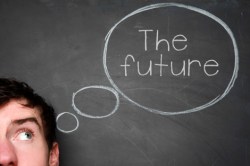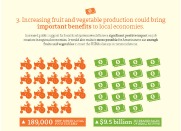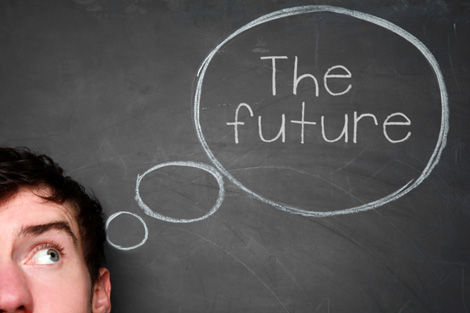 Over the last eight (!) years at Grist, I have written a great deal about what humanity is doing wrong — in particular, those bits of humanity that live in the United States, and even more particularly, those humanoids who run, fund, or otherwise influence the federal government, known these days as the World Headquarters of Fail. I’ve covered climate change, resource shortages, air pollutants and other unpriced externalities, political dysfunction, bad policy, media irresponsibility, social alienation, and bad television. It’s been a veritable Festival of Fail.
Over the last eight (!) years at Grist, I have written a great deal about what humanity is doing wrong — in particular, those bits of humanity that live in the United States, and even more particularly, those humanoids who run, fund, or otherwise influence the federal government, known these days as the World Headquarters of Fail. I’ve covered climate change, resource shortages, air pollutants and other unpriced externalities, political dysfunction, bad policy, media irresponsibility, social alienation, and bad television. It’s been a veritable Festival of Fail.
Meanwhile, over the last eight (seriously, eight?) years, I have also frequently mentioned the intense need these days for positive visions of the future — what is being done right, and could be done right, rather than just what’s going wrong. Indeed, a recent post concluded thusly: “In the meantime, the job is to define a new American way of life for young people, so when they take over they won’t view Walmart as akin to church.”
A couple of years ago, I started agitating for Grist to start painting that picture of a positive future. I wanted us to move beyond the tales of defilement and degradation that readers have come to expect from “environmental media” and into something more forward-looking, wide-ranging, optimistic, and, well, helpful. I even wrote a rather turgid internal memo on the matter, the theme of which was that Grist should turn its gaze toward “a future that makes sense.” OK, we as a society are doing it wrong. What would it mean to do it right, to stay within carbon and other resource limits while enjoying a high quality of life?
Since then, in my humble opinion, Grist has done fantastic work in this vein. We’re covering bike culture, livable neighborhoods, urban agriculture, sharing economies, distributed energy, and many other ways people in America today are trying to live better, more sustainable lives. There’s much more that we could do, but we’re moving in the right direction.
It has come to my attention, however, that even as I advocate for a bright-green focus on the future, I continue right on with my own dark-green bitching and moaning about the dysfunctions of the present; indeed, that I’m a giant hypocrite.
In that spirit, my editor has challenged me to put up or shut up on the future-that-makes-sense business. So I’m going to start writing about it regularly, at least once a week or so. I expect to be groping my way forward in the dark (even more than usual!), so my hope is that readers will approach the noodling in a spirit of charity and be moved to join in the discussion.
I’ll be gathering this stuff up in bits and pieces over the next little while, but just a few scene-setting comments.
Young People These Days (YPTD) in the U.S. are emerging from college and starting their adult lives in grim circumstances: a terrible economy, high unemployment, huge student loan debt, stagnant middle-class wages, rising health-care costs, and widening income inequality. The notion that America is in decline has been rather exaggerated, but there’s no denying the cloud hanging over the younger generation.
A great deal of it can be explained by the state of the economy, which affects poll numbers on all sorts of other issues. But I believe there’s also something deeper going on, a sense among young people that America has lost a sense of its collective aspiration. It has lost its future.
There’s an intense conservative grassroots movement in the U.S. fighting for an imagined 1950s status quo. The left in the U.S., such as it is, often seems to be fighting for nothing more than a competing status quo, the late-20th century U.S. welfare state. There is very little shared cultural understanding of what will (or should) come next, even among those subcultures prone to ponder such things.
YPTD — the folks coming up just behind my old ass, basically — represent the first generations who have spent their entire lives online. They are accustomed to radically transparent, egalitarian, meritocratic networks in which any idea (“meme”) can catch on and spread, regardless of the source, in which a geeky kid can have a good idea and almost immediately become famous or rich, in which anyone can learn anything and connect with anyone, in which there is virtually no barrier to entry to becoming a creator or entrepreneur. It is Teilhard de Chardin’s noosphere put, literally, into our hands.
When these young people emerge from college into the job market, start building homes and families, or engage in the political system, they encounter a world that is, in many ways, the opposite of the one they grew up in. Our civic institutions are withered, our political institutions bloated, hierarchical, opaque, and acutely responsive to class and ethnic privilege. These institutions, left over from the 20th century, do not make sense to YPTD — especially the vanguard, the cultural creatives.
What are they doing about it? Much of what we think of today as social activism or liberalism grew out of the culture clashes of the ’60s. The counterculture stood outside the gates of the institutions, shouting, marching, and threatening to bring it all down. The backlash has continued ever since.
My sense is that YPTD are not particularly attracted to that model, or to the kind of identity politics that liberalism fractured into afterward. YPTD don’t want to be on the outside looking in. They have spent their lives empowered; they expect to infiltrate institutions and transform them from the inside. They expect to take over. And they don’t seem inclined to join issue-based groups at the same rates as their parents. (The average membership age of the big green groups has been rising for years.) To be online these days is to author an identity through bricolage. Sustainability is a piece of the puzzle for many people, but comparatively few identify as “environmentalists,” partly, I think, because it’s reductionist. I believe in social justice and beauty and humor, but I’m not an -ist for any of them.
Getting to a future that makes sense is not primarily about critique or protest. It’s about imagination, innovation, and hard work. There’s tons of stuff to build. Creating those new social, economic, and technological models does not necessarily look like what we’re used to thinking of as activism, but it is part of the effort, which is far larger than any issue-based movement or lobbying group, larger than politics, larger than any one generation.
I’d like Grist to help illuminate new thinking and new models, spread the success stories, show how various efforts link up. I’m not sure exactly what that will look like. But it will not be “environmental journalism” and Grist won’t be an “environmental website.” But what will it be, and what will we be? I don’t know that there’s a good name for it. I just know it when I see it. There’s something happening out there, something taking shape. We’ll do our best to help it along and bring it to light.




